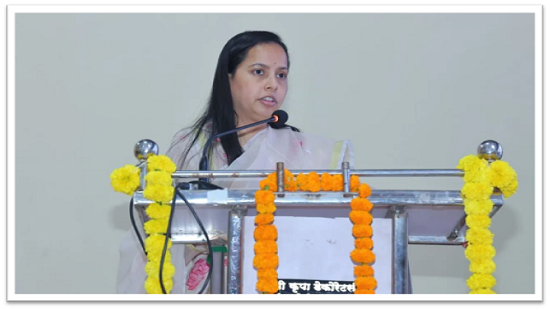
Maharashtra Expands Mission Vatsalya to Empower Widows, Deserted and Single Women Across the State
Public policy often finds its true test not in announcements but in how it responds to invisible citizens. Widows, deserted women, and single women represent one of the most vulnerable groups in India—often navigating economic insecurity, social stigma, and limited access to institutional support. Maharashtra has now widened the scope of its Mission Vatsalya scheme to address precisely this gap, extending it from its pandemic-era focus to a broader safety net for women across the state.
Launched originally during COVID-19, Mission Vatsalya was designed to provide support to orphaned children and widows who were suddenly left without family or financial backing. It focused on delivering documents, pensions, and essential welfare linkages through camps at the taluka level. Now, under the leadership of Women and Child Development Minister Aditi Tatkare, the scheme has been expanded to include all widowed, deserted, and single women. The initiative will be implemented as part of the ‘Shasan Aplya Dari’ (Government at Your Doorstep) campaign, bringing governance closer to people who are often the hardest to reach.
This is not just a policy tweak; it is a recognition of the structural vulnerabilities faced by women in a state where, according to Census 2011, more than 10 percent of adult women reported being widowed, divorced, or single—many of them in rural regions with minimal institutional support. By expanding Mission Vatsalya, Maharashtra is attempting to transform crisis-driven relief into a long-term framework of empowerment.
From Pandemic Relief to Structural Inclusion
The original Mission Vatsalya created taluka-level committees headed by Tehsildars to issue necessary certificates and ensure access to government schemes. Widows and orphaned children were supported through widow pensions, ration cards, housing benefits, caste and income certificates, and other forms of social security.
With the latest expansion, district-level committees will now organize special camps specifically for widowed, deserted, and single women. These camps aim to reduce bureaucratic hurdles and deliver services in a single-window format, ensuring timely access to welfare programs and legal entitlements. Minister Tatkare has emphasized that the initiative is not merely about assistance but about restoring dignity and independence to women who are otherwise left at the margins.
Beyond Welfare: Building Safety Nets for Women
Alongside Mission Vatsalya, Maharashtra’s Women and Child Development Department is scaling up its ecosystem of support for women. One Stop Centres (OSCs), which currently operate in 36 districts, are a crucial part of this safety net. These centres provide legal guidance, medical care, police support, psychological counselling, and temporary shelter under one roof. Victims of violence or distress can stay in these centres for up to five days while they receive immediate aid and rehabilitation support.
The Union government funds 100 percent of the costs for OSC infrastructure, staff honorariums, insurance, and emergency expenses. Construction is underway for centres in 14 additional districts, and until those are completed, services are being offered through premises allotted by district collectors.
Thousands of Women Already Reached
The scale of these interventions is not theoretical. Since January 2025 alone, 7,063 women have sought and received assistance at Maharashtra’s One Stop Centres. Cases have ranged from domestic violence and property disputes to cybercrimes, gender discrimination, and sexual harassment. Each number here represents a life interrupted—and a state attempting to provide not just relief but also a pathway to resilience.
By combining Mission Vatsalya’s expanded coverage with institutional support like OSCs, Maharashtra is crafting a multi-layered approach to women’s welfare: social security on one side, legal and emotional support on the other.
Toward Dignity and Inclusion
The expansion of Mission Vatsalya represents more than a welfare announcement—it reflects a governance philosophy that sees marginalized citizens not as passive recipients but as participants in social renewal. It builds on the pandemic lesson that government must not only provide emergency relief but also strengthen institutional scaffolding for long-term inclusion.
For a state with over 6 crore women, the policy is both symbolic and practical: a reminder that development is not measured only in infrastructure or GDP growth but in the dignity and security of its most vulnerable. Maharashtra’s decision to widen Mission Vatsalya could become a model for other states—an example of how to scale compassion into structured policy.




